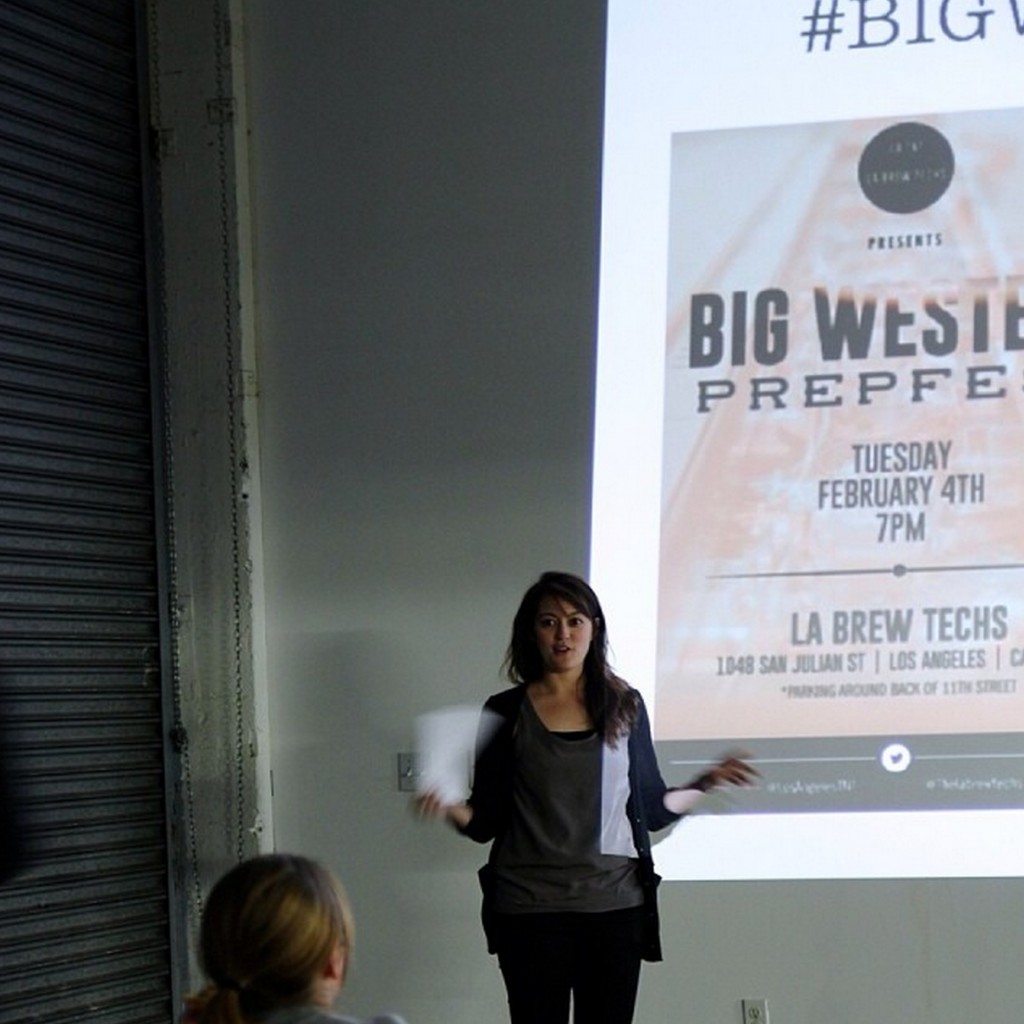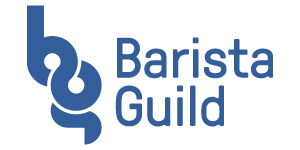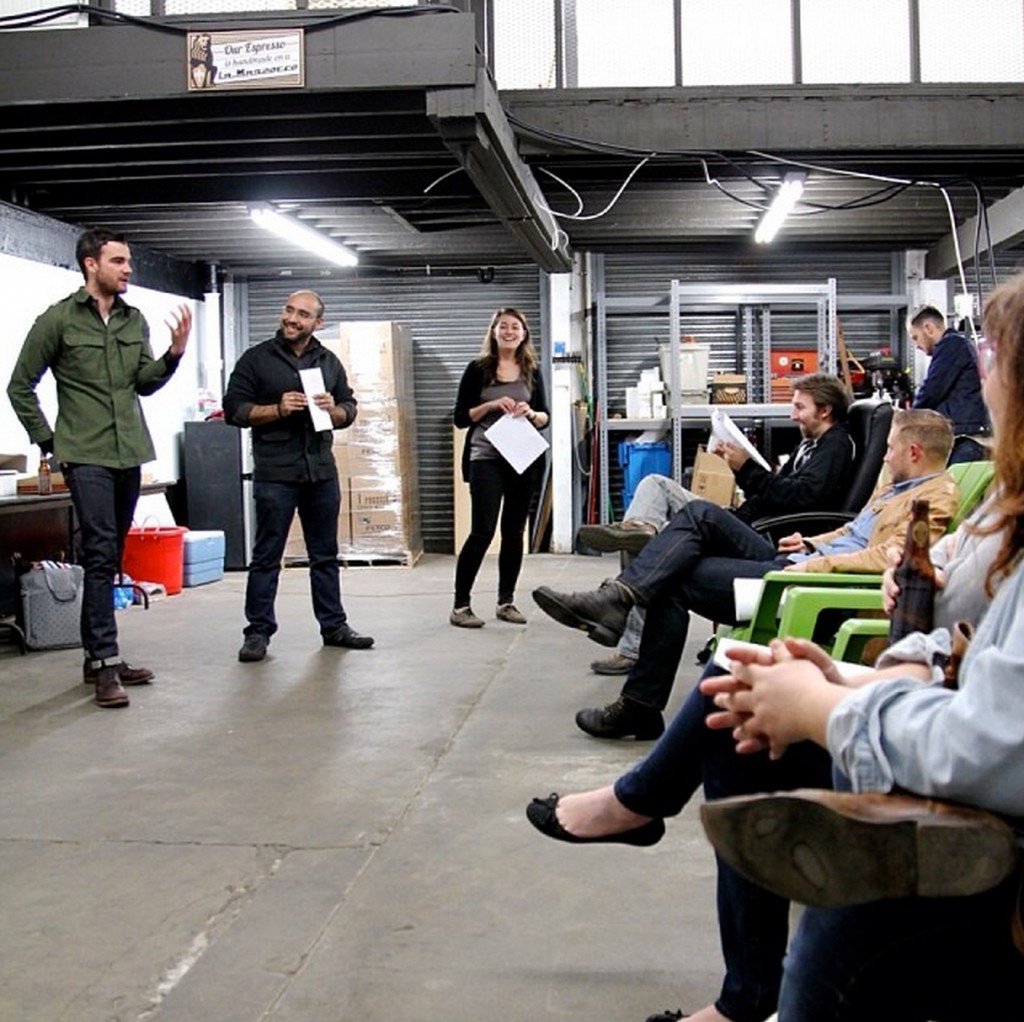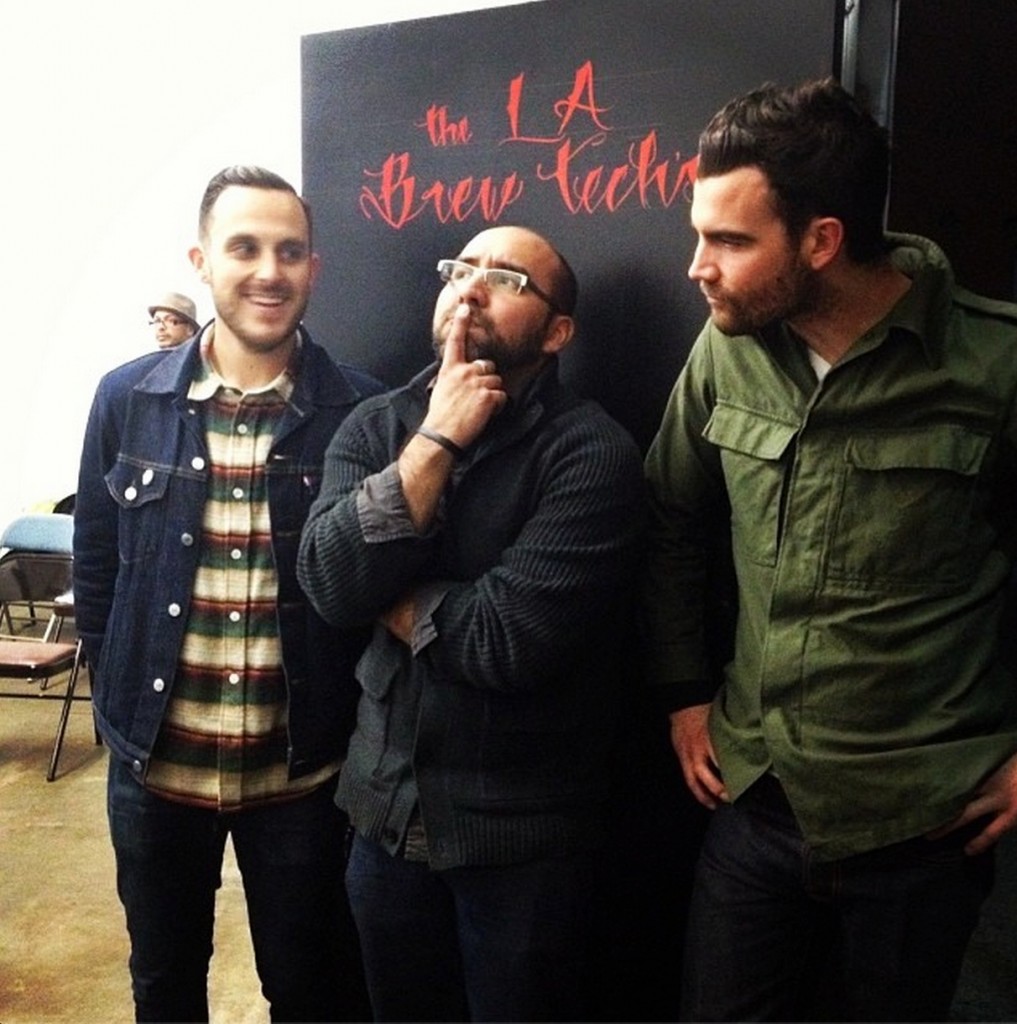#BigWestern Prepfest at LA Brew Techs
Los Angeles TNT and hosts LA Brew Techs put together an awesome event Tuesday night to help barista competitors prepare for the Big Western. Over beer and empanadas, panelists 2013 NW Regional Champion Devin Chapman (Verve Coffee Roasters), 2013 NC Regional Champion Charlie Habegger (Handsome Coffee Roasters), USBC Head Judge Miguel Vicuna, and BGA Executive Council Vice-Chair Julie Housh talked barista performances of past, the "whys" behind decisions made in performances, and how to fine tune your performance to ensure you get every point you deserve. Charlie was kind enough to share his thoughts with the BGA blog via email:

What that was said Tuesday night, by yourself and other speakers, would be most important for baristas who are competing to know? I think having Devin and myself present side by side was a great way of communicating two (though there are many more than that) styles of presentation—Devin's was perfectly paced, clearly scripted, and more formal overall, whereas mine was intimate, spontaneous, and more experiential. But we both started with an idea that stayed the central motivator for every decision we made while writing our presentations. I've never thought "winning" was an acceptable reason for competing, because there have been barista champions who I don't find particularly inspiring or innovative in how they move or how they think about coffee. I think the most important thing for competitors to remember is why they're getting up there, and to hold onto that original motivator as tightly as possible: "Do I want to show off this coffee that's meaningful to me...Do I have an opinion about brewing or service that I want to present...Do I want to be judged as a barista in order to improve?" etc..
And "winning" isn't an end—it happens along the way to pursuing the real reasons we compete—community, dialogue, challenging yourself. Specifically for Devin, it was the customer-centric purpose that bonds cafe and farm; for me it was the unseen challenges that are behind many of the coffees we love. We both had these wild ideas that we were dying to make real for people. And I think we both did well because we worked so hard to make these ideas clear and delicious. Once you have your motivator safe at hand, you can start to build a routine that's honest to that motivator.
The other thing all high-scoring competitors have in common is a complete sympathy for the judges' world throughout their service. The little points we made last night about service details were all about considering the minutiae that make table service feel wonderful, like how you get judges to visualize your flavors (my building my "shot" note for note in a tall glass, which underwent 5-6 versions), or how you describe a certain drink (on which Devin spent 10 hours), or how you leave them plenty of time to enjoy their drinks and write. Your ideas will only be absorbed to the extent that you understand what it's like to receive your service. Without sitting in the judges' seat you have no idea what will stick or get noticed for feeling odd.
So those would be the two: own your motivation; sympathy for the judges.
For baristas who are considering competition, why should they make the leap? Because creating routines is such an irreplaceable process! It's a meld of intensive problem solving and soul searching. Putting a coffee, or the way you relate to it, into real words is so much harder than you think, and finding ways to execute and still be creative is a process of trial and error that will always leave you better than when you began. Consider competing if watching a competitor has ever changed the way you think about coffee, or if you have ever wished you could serve coffee in some particular way. Competition gives you fifteen minutes to say and do whatever you want with espresso, and you're guaranteed an audience listening to every word and trained to taste well. If that excites you, you're in.
Photos courtesy of @LosAngelesTNT


